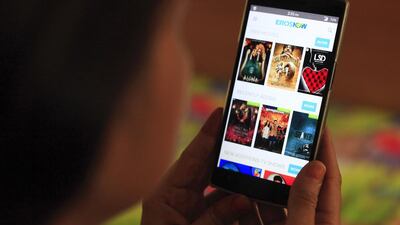Just this week I came across several articles covering Alicia Keys’s most recent “phone-free” concert. After a bit of research I found out that many artists, including comedians such as Dave Chappelle and Louis CK, have been using lockable phone-pouches made by San Francisco company Yondr at their shows to ensure a smartphone-free crowd.
While I can see the pros and cons of this set-up, I find it more important to consider what has brought us to this point where performers have started implementing phone-free events.
I have, for a very long time, had a love-hate relationship with technology. So while I very much appreciate my smartphone and all its functions, I remember a time when phones were actually used to make calls and sometimes I find myself wishing they were still used just for that.
This is especially true when I am at a concert and all I can see are screens instead of the stage, or when I am trying to catch up with a friend, I realise that instead of any eye contact I am staring at their Game of Thrones phone case for the whole evening.
I am not usually in favour of implementing any type of drastic measures, but I do believe that technology is increasingly becoming distracting. What happened to people simply enjoying a show without trying to document every moment of it? What happened to living life in the moment and not constantly through a lens?
Yes, smartphones are useful. Mine has helped me find directions, contact someone in an emergency and translate something into a foreign language. Yet I find that we seem to be at the mercy of our phones rather than them just being a tool.
Countless studies have proven that excessive use of the smartphone can affect our sleep, posture and eyesight. Our over-reliance on mobile devices and the internet also affects our long-term memories, relationships and the way we socialise.
Technology by itself is not good or bad – it is how we have come to use it that makes all the difference. This is why we need to seriously rethink this issue. I think we are being swept away by the tide of technological innovation. We ought to establish boundaries or acceptable codes of conduct for smartphone use.
It should not be OK to go out to dinner and feel the need to read an article or answer questions such as “which Harry Potter character do you belong to based on your favourite cupcake flavour?”
It's necessary to acknowledge and interact with the people sharing the table with you. Just because it seems like all your friends are on Snapchat doesn’t mean everyone wants their every move to be documented all the time.
We compulsively carry our smartphones wherever we go – whether it's the classroom, bathroom, bedroom or outdoors. As if the phone is the source of oxygen. We seem to be more interested in our digital notifications and messages rather than what is happening around us.
The month of Ramadan is not just a time to cleanse the body and mind, but it’s also a chance for me to practise detachment from my phone.
I believe it is important to understand how smartphones affect and relate to facets of our lives before these technologies become so fully ingrained that it’s hard to recall what life was like without them.
Being present in the moment has become something you have to work at.
Therefore, I invite you all to join me as part of our greater reflection during the holy month to set some smartphone boundaries for yourself and really consider why we have become so immersed in our digital lives and perhaps find some balance.
Fatima Al Shamsi is a globetrotting Emirati foodie, film buff and football fanatic

